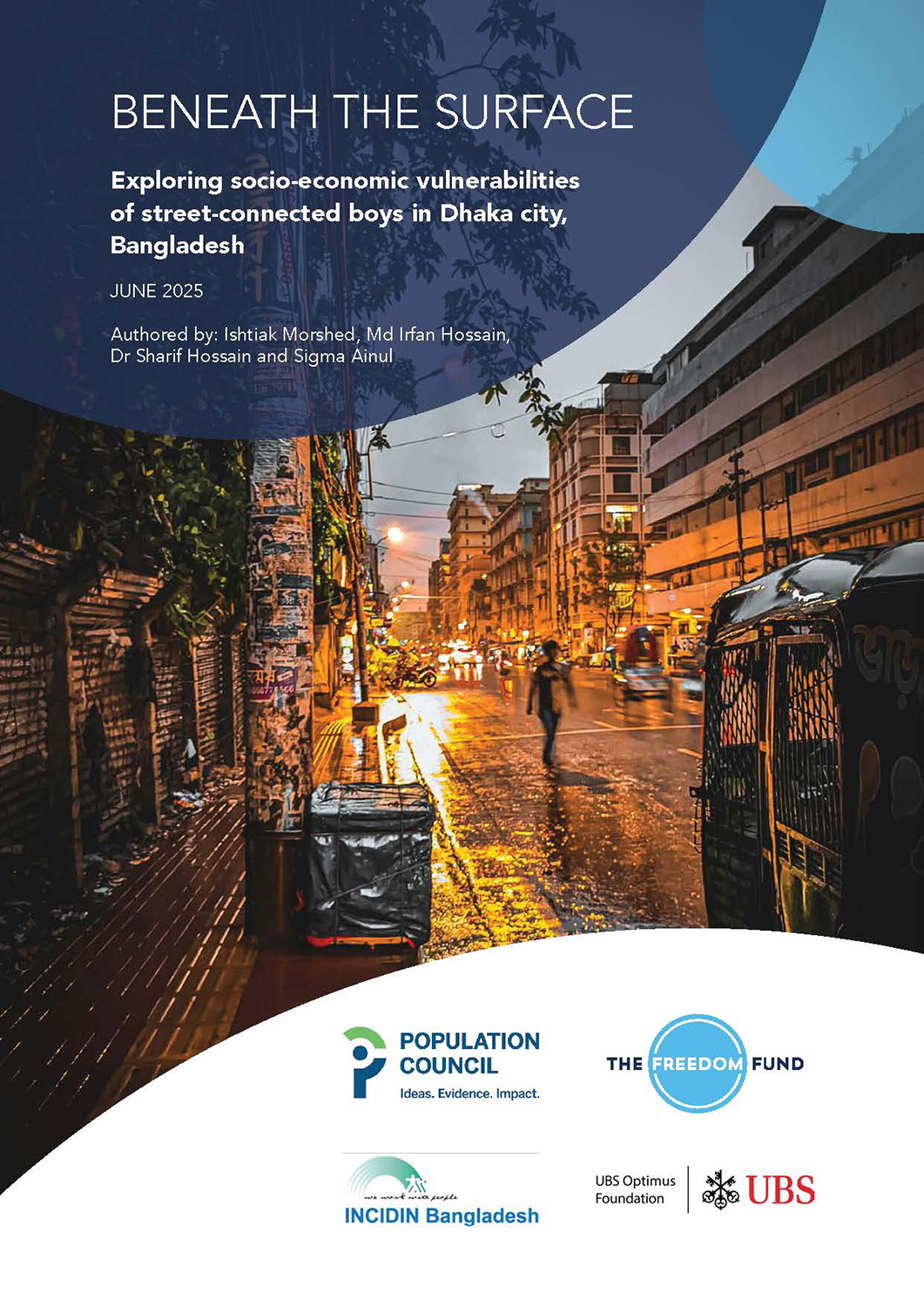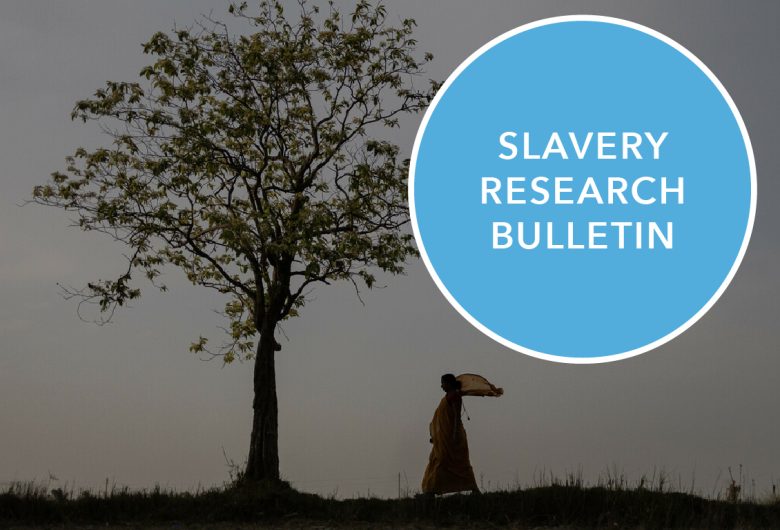Exploring socio-economic vulnerabilities of street-connected boys in Dhaka city, Bangladesh
Street-connected boys in Dhaka, Bangladesh, face significant socio-economic vulnerabilities due to factors such as poverty, family instability, migration, lack of education and exclusion from social support systems. Many of these boys also struggle with food insecurity, hazardous work conditions, substance abuse and exposure to violence.
Building on the survey by Bangladesh Bureau of Statistics and UNICEF (2022) on street children, this study examines the socio-economic vulnerabilities of street-connected boys in high-risk areas of Dhaka city, a subgroup often overlooked in broader national surveys. It provides more localised and in-depth insights into the lives of boys living and working in Dhaka, including their experiences of commercial sexual exploitation. These findings help to fill critical knowledge gaps and support context-responsive interventions.
Insights from our latest study
To support evidence-based responses, Population Council and INCIDIN Bangladesh, with support from the Freedom Fund, conducted a large-scale study on the socio-economic vulnerabilities of street-connected boys in Dhaka city. The study surveyed 883 boys aged 12-17 years, both those living and working on the streets.
Migration history: The majority (61.7%) of street-connected boys were migrants to Dhaka city from nearby districts. The primary reasons for migration included searching for work (68.1%), family migration (29.0%) and financial hardship at home (25.5%). The average age at which children migrated was 10.5 years and a significant number of boys (22.9%) migrated to Dhaka alone, often due to family instability, neglect or violence.
Living conditions and food insecurity: Almost one-third (32.6%) of boys reported skipping at least one meal in the past four weeks due to lack of money. Boys living on the streets without family were most affected, with 50.5% reporting skipping meals and an average of six missed meals per month. 15.4% of boys reported sleeping in unsafe locations, with boys living alone on the streets being the most vulnerable.
Work and income: A majority (97.1%) of boys had worked to earn money or in exchange for food, shelter or favours, with the monthly incomes averaging BDT 6,726 (USD 56). The most common types of work included shop and restaurant work (28.7%), peddling or hawking small goods (19.4%), transport sector jobs (12.4%) and working in factories (9.6%). In qualitative interviews, many boys described working long hours in unhealthy and risky environments, often lacking adequate food or sleep.
Substance usage: Just under one-third (29.0%) of the street-connected boys had used alcohol or drugs. Many reported being forced into drug use, particularly those living with family (9.1%). Boys living alone on the streets were particularly vulnerable to violence from criminal gangs, local thugs, drug dealers and even law enforcement officials.
Commercial sexual exploitation of boys: Among study participants, 4.0% had experienced commercial sexual exploitation, with the average age of first experience occurring at 13.1 years old. When extrapolated to the Dhaka district, this suggests that the estimated population (crude) of boys experiencing CSEB is 5,071 (with a 95% confidence interval of 4,702 – 5,439). Many survivors did not recognise their experiences as exploitation, and stigma likely contributed to underreporting.
Recommendations
The findings emphasise the need for stronger collaboration among government agencies, law enforcement, policymakers and civil society organisations to address the vulnerabilities of street-connected boys.
Prevention: Strengthen awareness on unsafe migration in high-risk areas through schools, religious institutions and social media, while using school attendance monitoring and child-friendly help desks to identify and support at-risk children.
Protection: Conduct vulnerability mapping to identify at-risk boys, reopen night shelters, expand specialised support services and utilise the National Referral Mechanism for coordinated assistance.
Prosecution: Train police and officials to respond to violence against street-connected children and ensure proper investigation and prosecution of reported crimes.
Reintegration: Prioritise family reunification with risk assessments and social support, and provide alternative care options including shelter, documentation, education and vocational training when reunification is not feasible.
This study sheds light on the urgent need for intervention to protect and support street-connected boys in Dhaka. Click below to access the full report: Beneath the Surface: Exploring socio-economic vulnerabilities of street-connected boys in Dhaka city, Bangladesh.
Photo credit: Najmul Huda / Unsplash




